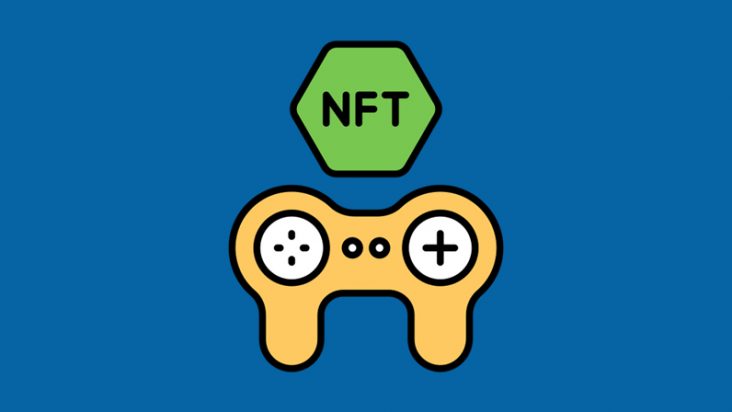

The Malta Gaming Authority (MGA) plays a critical role in the global iGaming sector, dating back to its inception in 2001 when it was originally known as the Lotteries and Gaming Authority (LGA). Malta’s strategic location in the Mediterranean, combined with its robust regulatory framework, has made it a hub for online gambling. As one of the pioneers in the regulation of online gambling, the MGA set a global standard for ensuring fairness, transparency, and player protection. The MGA continues to be a trusted authority, with its licensing recognized as a symbol of quality and reliability across the iGaming industry.
The global gaming industry has undergone significant transformation in recent years, driven by technological advancements and the expansion of markets. Digital platforms, mobile applications, and innovations like live dealer games have redefined the gaming experience, increasing player engagement worldwide. The rise of esports and the growing popularity of online casinos are reshaping traditional gaming landscapes. In parallel, regulatory environments have become more complex, with new jurisdictions opening their doors to regulated gaming, such as the Netherlands and several states in the U.S. The MGA remains a key player in this evolving landscape, adapting to new trends and working with international partners to ensure its license holders maintain compliance with the highest industry standard.
The Role of MGA in Global Gaming
The MGA is highly regarded as one of the most trusted gaming regulators. Its license ensures operators meet stringent standards of fairness, transparency, and player protection. This credibility attracts major brands like Betway and Unibet, who use their MGA status to assure customers of their legitimacy.
As part of the EU, Malta offers operators access to a broad European market. The MGA’s alignment with EU regulations, such as GDPR, makes it easier for operators to expand across member states while ensuring compliance with local laws.
The MGA covers a wide range of gaming products, including online casinos, sports betting, and lotteries, offering both B2C and B2B licenses. This flexibility allows operators to cater to various business models, from gaming platforms to software and risk management services
Current Trends Shaping the Future of the MGA License
The MGA (Malta Gaming Authority) is adapting to several key technological advancements that are shaping the future of the gaming industry:
- Blockchain and Cryptocurrency: The rise of blockchain technology is influencing the gaming world significantly, with players and developers embracing decentralized gaming models. The MGA is addressing this trend by evaluating how cryptocurrency can be integrated into regulated gaming environments. This is part of a broader push to ensure that crypto gaming platforms comply with current standards, allowing for secure, transparent transactions and the tokenization of in-game assets.
- Artificial Intelligence (AI): AI is transforming gaming by improving player experience through behavior analysis, fraud detection, and compliance automation. The MGA is integrating AI tools to enhance its oversight, ensuring that operators use AI responsibly and in line with regulatory frameworks. AI also plays a role in creating personalized gaming experiences by predicting player preferences and adjusting game dynamics.
- Mobile Gaming Surge: As mobile gaming continues to dominate, especially with the introduction of 5G networks, the MGA is ensuring that its regulations evolve to meet the demands of mobile-first platforms. This includes ensuring that mobile games are compliant with age restrictions, responsible gambling guidelines, and other regulatory requirements.
- Sustainability and Environmental Concerns: The growing demand for sustainable and socially responsible gaming practices is being recognized by the MGA. This is reflected in their introduction of the Environmental, Social, and Governance (ESG) Code of Good Practice, which encourages operators to adopt socially responsible practices, including sustainability initiatives and transparency in their operations.
The Impact of Global Gaming Market Expansion
The Malta Gaming Authority (MGA) plays a crucial role in expanding the global gaming market, particularly in emerging economies across Asia, Africa, and Latin America. These regions have experienced a boom in online and mobile gaming, largely driven by improved smartphone accessibility, faster internet speeds, and the rising middle class. The MGA helps operators navigate these new markets by ensuring they meet local regulatory and cultural requirements, thus facilitating smoother market entry.
As global gaming continues to surge, especially mobile gaming, the MGA’s role in ensuring that operators comply with international standards and regional regulations becomes more important. The regulatory framework in Malta has proven to be a reliable gateway for operators seeking to enter the European market, with its robust licensing system being recognized as one of the most reputable in the industry.
In comparison to other jurisdictions like Curacao and the UK, Malta remains competitive due to its flexible licensing options, transparent regulatory processes, and commitment to responsible gaming. As new markets open up, especially in the mobile-first sectors of Africa and Asia, the MGA will likely continue adapting its framework to maintain its leadership in the global gaming sector.
How MGA is Supporting Operators in a Globalized Market
Malta has long been a strategic hub for iGaming, attracting operators with its favorable regulatory environment and business infrastructure. The Malta Gaming Authority (MGA) is instrumental in maintaining this position by offering robust and transparent regulations, which are especially appealing to international operators.
Malta as a Hub for iGaming: Malta continues to serve as a prime location for iGaming companies, offering access to European markets and beyond. The island’s regulatory framework provides security and legitimacy, which are key to building trust with players and other stakeholders. Malta’s tax regime, which allows for favorable effective tax rates through various incentives, further attracts operators.
Incentives for Operators: The Maltese government offers various tax benefits to iGaming companies. Operators can benefit from a corporate tax rate that can be as low as 5%, thanks to refunds and incentives aimed at supporting the industry’s growth. These financial advantages are complemented by a stable business environment that fosters innovation and expansion.
Business-Friendly Environment: Malta offers a competitive advantage to international operators through its modern infrastructure, skilled workforce, and regulatory support. The country’s stable legal environment and focus on business development create a favorable atmosphere for operators looking to scale their operations.
Partnerships and International Networking: The MGA plays a crucial role in facilitating partnerships and international networking. By hosting industry events and conferences, the MGA connects operators with global players in the iGaming sector, enhancing collaboration and the exchange of ideas. These events help Malta strengthen its position as a global hub for iGaming.
The Future of the MGA License: Opportunities and Growth
As the iGaming industry continues to expand globally, the MGA License remains central to the growth of virtual and augmented reality (VR/AR) gaming, esports, and social gaming. Here’s how the MGA can support these sectors:
- Growth in Virtual and Augmented Reality (VR/AR): With the rise of immersive gaming experiences, VR/AR technologies are set to redefine online gaming. The MGA is adapting by developing regulations that ensure safety and compliance in these interactive environments. As VR/AR platforms gain popularity, the MGA will likely play an essential role in creating standardized frameworks for these innovative experiences, ensuring they meet both player safety and regulatory standards.
- Rise of Social Gaming and Esports: Social gaming, blending traditional gambling with social interaction, is booming. Platforms that integrate multiplayer features, leaderboards, and live streaming have seen higher engagement rates. The MGA can extend its reach to cover these emerging markets, offering new licensing provisions tailored to esports tournaments and social casinos. With esports generating substantial revenue, Malta’s role in regulating this space will grow, as operators look for safe, trusted jurisdictions.
- Global Collaboration on Responsible Gambling: As the industry faces increased calls for responsible gambling measures, the MGA is expected to play a crucial role in global collaborations. The MGA’s involvement with international bodies ensures the implementation of best practices and the development of shared standards for player protection. This will be especially important in addressing issues related to problem gambling, AI-driven interventions, and maintaining safe gaming environments
Future of the MGA License and Global Gaming
The MGA license remains a key asset for iGaming operators, offering credibility, access to global markets, and a robust regulatory framework. As the industry evolves with advancements like blockchain, VR/AR, and mobile gaming, the MGA is adapting to support these changes.
- Future for MGA License Holders: The MGA’s flexibility and reputation ensure operators can thrive in a dynamic gaming landscape, balancing compliance with operational growth.
- Global Gaming Expansion: With the expansion of gaming markets in Asia, Africa, and Latin America, the MGA is a crucial player in helping operators navigate new, complex regulations.
- Opportunities in New Sectors: The MGA will continue to support emerging gaming sectors like esports, social gaming, and VR/AR with tailored licensing provisions to address new challenges.
In essence, the MGA license will remain central to global gaming, providing operators with the necessary tools to expand and adapt in an evolving market. If you want to learn more, you can explore the report Malta Gaming Authority, Online Gambling License, August, 2024.








